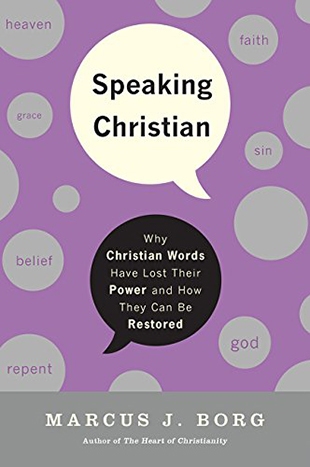Christian language emanates from the Bible and the words used in worship, creeds, hymns, study, and community gatherings. But the numbers of people growing up Christian has decreased in the United States and even more in Europe. According to surveys, of the Americans born since 1980, 25 percent describe themselves as having no religious affiliation. In this wake-up call, Marcus J. Borg, bestselling author of many books on the historical Jesus, states that the diminishment of Christian language has come about through a rigid literalism which has distorted the understanding of Christianity's rich tradition and core ideas. The original appreciation of faith as a path for goodness and transformation has been replaced by what Borg calls "the heaven-and-hell-framework" consisting of four elements: the afterlife, sin and forgiveness, Jesus' dying for our sins, and believing. Borg's goal is to redeem (set free) Christian language from the prison of narrow dogmatism which distorts the meanings of the Bible and Christianity.
The first big word covered is "salvation" which has been totally warped as "going to heaven." Instead the church would do better by the gospel by relating it to "a transformed world of justice and peace." This capacious definition speaks to the yearnings of people of all ages and beliefs. As far as the word "God" goes, we need to replace the idea of God as punitive and threatening with that of God as gracious, loving, and compassionate.
In his discussion of "believing and faith," Borg refutes the idea that believing the right things about the creation of the world is what is essential. Instead the church could emphasize faith as a deep "movement of the heart, of the self at its deepest level." In his treatments of "sin," "forgiveness," and "repentance," Borg demonstrates how an over emphasis on these terms has resulted in a depletion of the wisdom of the Bible and produced a toxic self-hate in millions of people around the world. Other words covered include born again, the only way, heaven, mercy, and the rapture and second coming.
Borg closes Speaking Christian with his appreciation for its accent on the transformative power of love and communal renewal.
